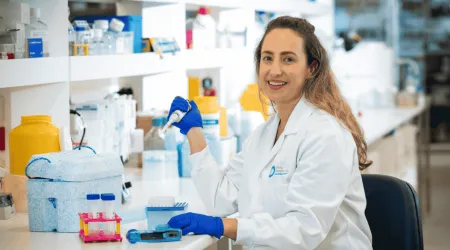
Caregivers
Caring for yourself is one of the most important things you can do as a caregiver. Unfortunately, it is often neglected.


Caregiver support
Caregivers play an important role in supporting their loved one at every stage of the colorectal cancer journey. But who supports the caregiver?
Staying well as a caregiver
As a caregiver, your resources will be essential. We have gathered a collection that will help.
Emotional well-being
Acting as someone's caregiver make you feel like a nurse, parent, or maid. It’s normal to have strong emotions about your new role.
Physical well-being
As the needs and symptoms of the cancer patient fluctuate, so do the needs and well-being of the caregiver.
Staying organized
Caregivers field a lot of information and it can become overwhelming. Learn how you can stay on top of things.
Top ten questions to ask doctors
It’s important to know what to ask at doctor's visit, especially as a caregiver. Don't forget to bring a notebook and pen.
Communication is key
Caregivers communicate across many channels from the patient to the doctors to insurance companies.
Financial concerns
Many caregivers take time off from work to take care of loved ones, which can create a financial strain.
Stress and burnout
Caregiving is often a long-term challenge and the emotional impact can mount over time. It's important to recognize the signs of burnout.
Grief and loss
When a loved one dies, the loss as a caregiver may be mixed with guilt, relief, and uncertainty over the future.
Call us whenever you need us
Sometimes you just need to talk to someone. We are here for you at all times –just give us a call on our Toll Free Helpline (877) 422-2030.
Take care of yourself so you can take of others
Wearing the badge of ‘caregiver’ presents unique challenges. The greatest one may be learning how to take care of yourself.
Top resources

Where breakthroughs begin: Project Cure CRC spotlight on Dr. Lisa Mielke
hrough Project Cure CRC, the Alliance is fueling bold, early-stage research with the potential to transform colorectal cancer treatment. Dr. Lisa Mielke’s groundbreaking work explores how the gut’s immune system and nerve signaling influence cancer growth—opening the door to new therapeutic approaches, including repurposed existing drugs. This is what’s possible when promising ideas get the support they need to move forward.

John E.: Biomarker testing uncovered a pivotal treatment option
After a grim prognosis, biomarker testing revealed a targeted treatment option for John E. Learn how knowing your biomarkers can change what’s possible.

"Clinical trials gave us time": A daughter’s tribute to her mother’s courage
When Kate Shin’s mother faced rectal cancer, clinical trials gave them precious time together. Now, Kate shares her story to encourage access to screening and innovative care, including clinical trials.





